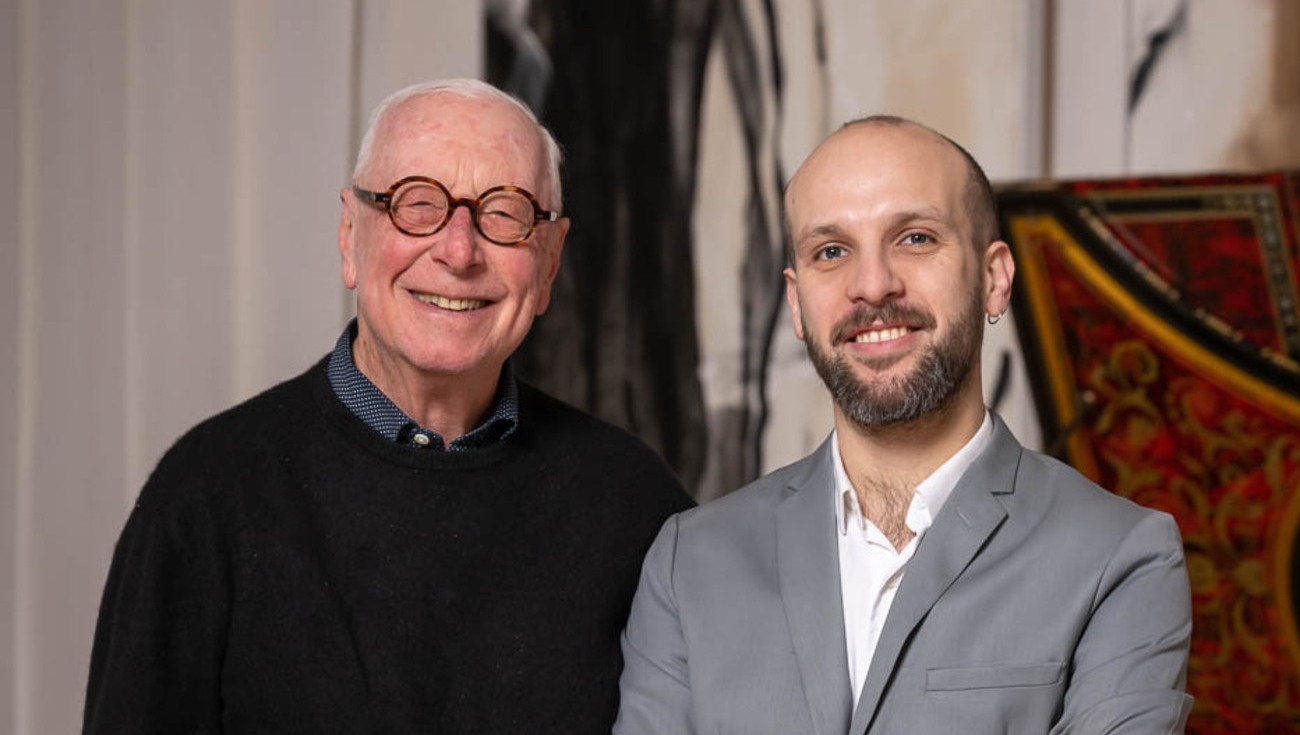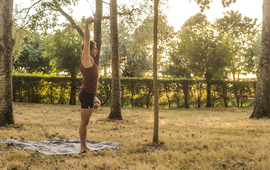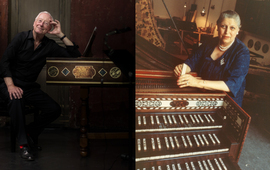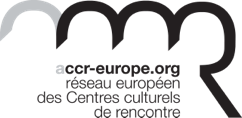Violinist Emmanuel Resche-Casterta is a recognizable figure of Les Arts Florissants. He has risen through the ranks of the orchestra, assuming the role of first violin. He is now William Christie's musical assistant. With the conductor, he evokes here the artistic affinities and the privileged working relationship that binds them...
How did your artistic relationship develop? What kinship – artistic, cultural, human – brings you together?
Emmanuel Resche-Caserta: We met ten years ago, in 2012. I was a student at the Juilliard School in New York at the time, and I won the audition to be first violin in the concert conducted by William at Lincoln Center with students from the school. The project galvanized me. It was a time in my life when I had a lot of questions - I wasn't sure I wanted to pursue music - but after that experience and especially that meeting, I had no doubt. If I could make music of such intensity, with people like William and the artists of Les Arts Florissants, then that was how I wanted to make a living.
William Christie: Emmanuel and I share a way of looking at things that is not limited to music: often our conversations extend to painting, literature, history, sculpture... things that are essential for music to express itself eloquently. You can't understand an era without its context. Likewise, you can't play a piece of music without some knowledge of the other arts that existed at the time it was composed. Les Arts Florissants is, by the way, remarkable for the intellectual and cultural level of the musicians who make up the ensemble: it's amazing! In Emmanuel's case, this sensibility is particularly strong, which contributes to our good relationship.
From student intern to musical assistant to William Christie, what was Emmanuel’s trajectory within the orchestra?
Emmanuel Resche-Caserta: I started as an apprentice in the orchestra. When I returned from Juilliard, I received an invitation to play Platée in 2014. Little by little, I was invited back regularly, and William wanted to give me a little more responsibility, first as leader of the second violins, in a small chamber music ensemble, and then among the first violins... A few years ago I did the artistic direction of a disc of airs de cour, and in 2021 I published a collection of interviews with William with the publishing house Actes Sud. All this has really strengthened our common understanding.
William Christie: We are an altogether atypical orchestra. This is due in particular to the fact that the same musicians play a very specialized repertoire, in formations that can vary greatly in size. They know each other very well and share a complicity that they can put to good use in large ensembles. This is what makes all the difference. How many orchestral musicians can honestly say that they play such demanding music with virtuosity and awareness? To play Charpentier's Leçons de Ténèbres, then Gluck's great ceremonial music in the space of four days, is not common!
In an ensemble as specific as Les Arts Florissants, what does it mean to be musical assistant?
William Christie: Emmanuel is there to assist with certain musical programs and the composition of the orchestra, which requires a good knowledge of the repertoire as well as curiosity. For example, he can look for the pieces that will be performed during a concert. It is very reassuring for me to know that I have someone to assist me who meets all these criteria. I am also very happy to have a violinist as an assistant: he can take charge of the strings in order to offer a greater aesthetic consistency, while mastering the required technique. This gives me much more freedom while also enabling us to work more comprehensively.
Emmanuel Resche-Caserta: My role is to make the orchestra work when William is not there. I know which direction fits his aesthetic, not only because I know him well, but also because it's the direction I would naturally want to take. So I can trust my judgment. We are a good match – our tastes are quite compatible!
William Christie: Everyone remembers that astonishing moment some forty years ago when Bernstein conducted the Vienna Philharmonic without making a single movement: the musicians continued to play, and wonderfully so! But that was thanks to the presence of a first violinist who knew how to make good use of his independence. Here, as in all great orchestras, a first violin can truly nourish the interpretation of a work. It is a question of both responsibility and liberty.
Emmanuel Resche-Caserta: There is an analogy that I like very much to talk about our way of working: that of a painter’s studio. When you listen to one of Les Arts Florissants’ concerts, even on the radio, you recognize a style. In the same way, in a painting by Rubens, you find a certain touch. That’s because the great master was able to impose a clearly identified style, but also because there is a whole workshop around him which has been trained in this same taste and which is able to prepare the canvas, the colors... And in every workshop, there is an artist in whom the master has enough confidence to entrust him with certain finishing touches. I have always liked being able to recognize, in certain works, details that are not by the hand of the master but of one of the members of his workshop. The connection is clear, but you can detect a separate personality. This is my model, in a way. I feel like an artist from William Christie's workshop, able to defend the aesthetics of the house.
What are your next projects? And how do you see this collaboration developing in the years to come?
Emmanuel Resche-Caserta: We have a big project for the next season: Charpentier's Médéé, which will be performed at the Opéra de Paris and for which I will have a lot of work to do with the orchestra. In the future, I would also love to perform the opera Terpsichore and Handel's concerti grossi, a summit of 18th century instrumental music, which is not well known...
William Christie: The fact that Emmanuel will be accompanying me as my assistant is of course a matter of concern to the entire orchestra, which has received this news in a very positive way. It has also earned the full approval of Paul Agnew, who works alongside me as musical co-director and whose opinion is essential for all decisions that affect the good of our ensemble today. We are currently seeing a strengthening of solidarity within the orchestra. It is composed of wonderful performers – new ones, but also veteran ones who have been here for more than thirty years. And they all play together! The strength of our ensemble is its family-like atmosphere - and that is very important.











